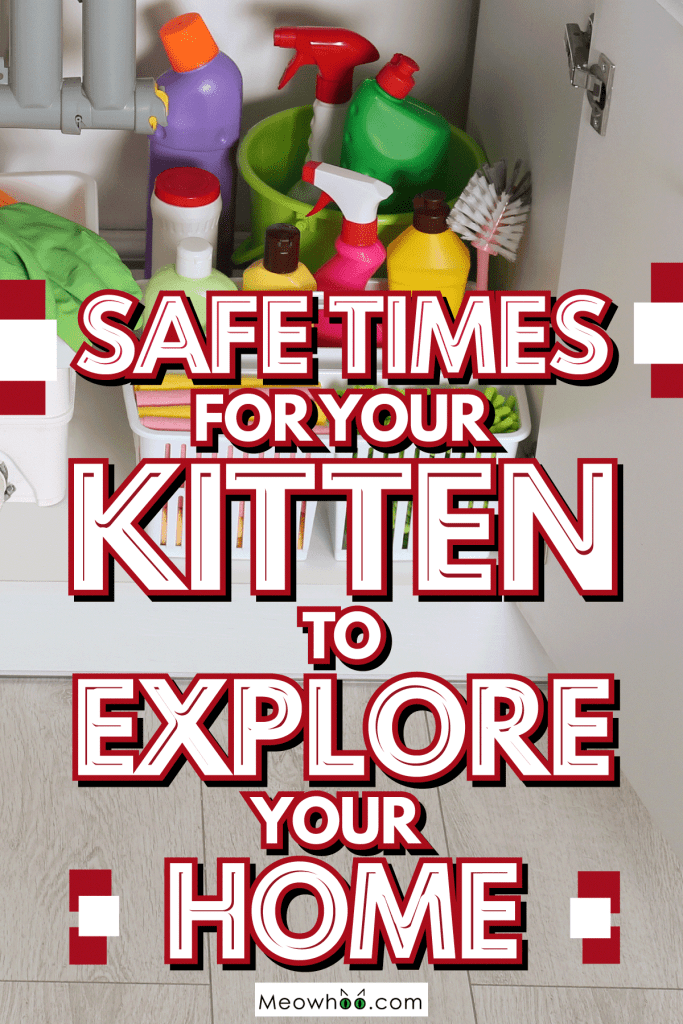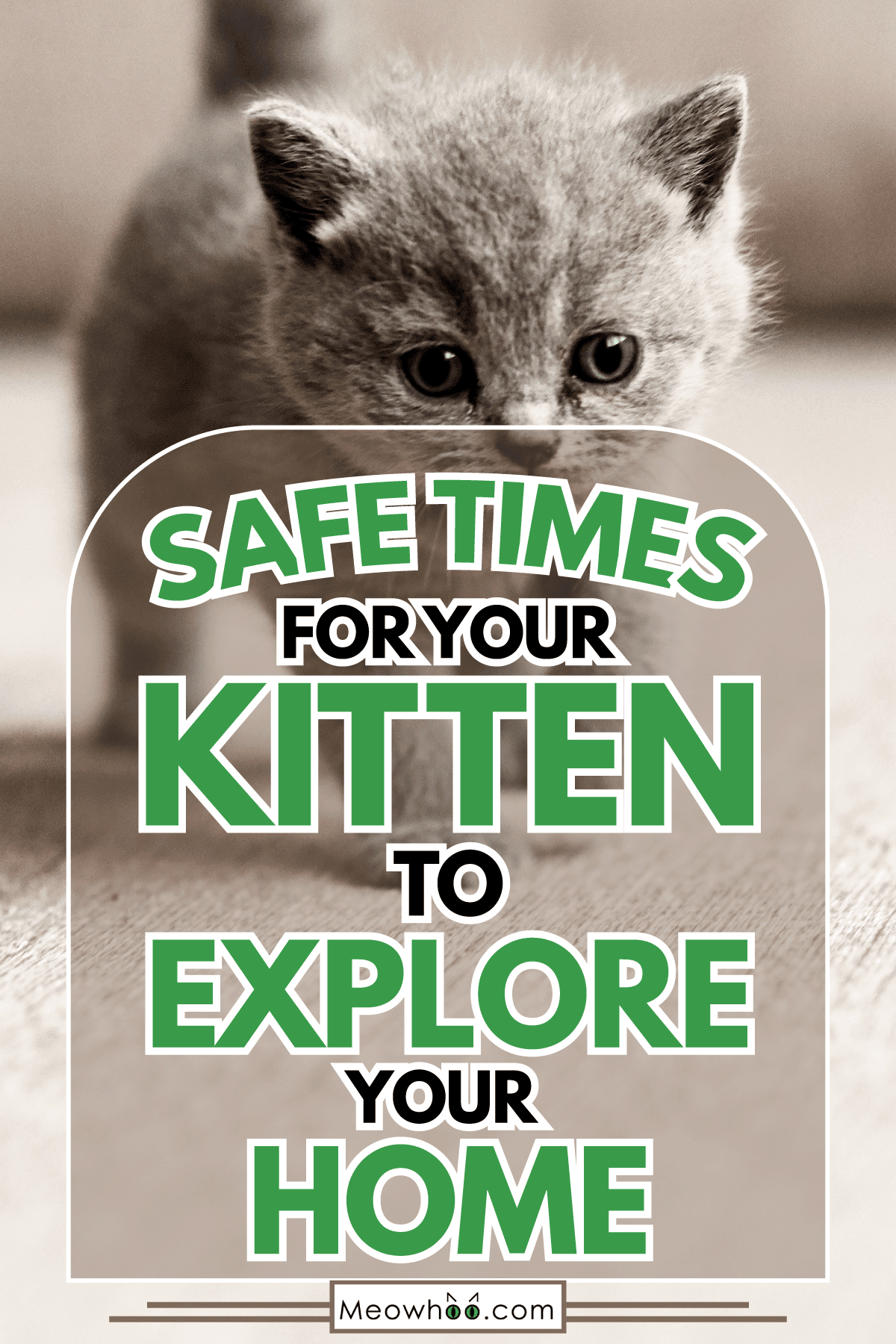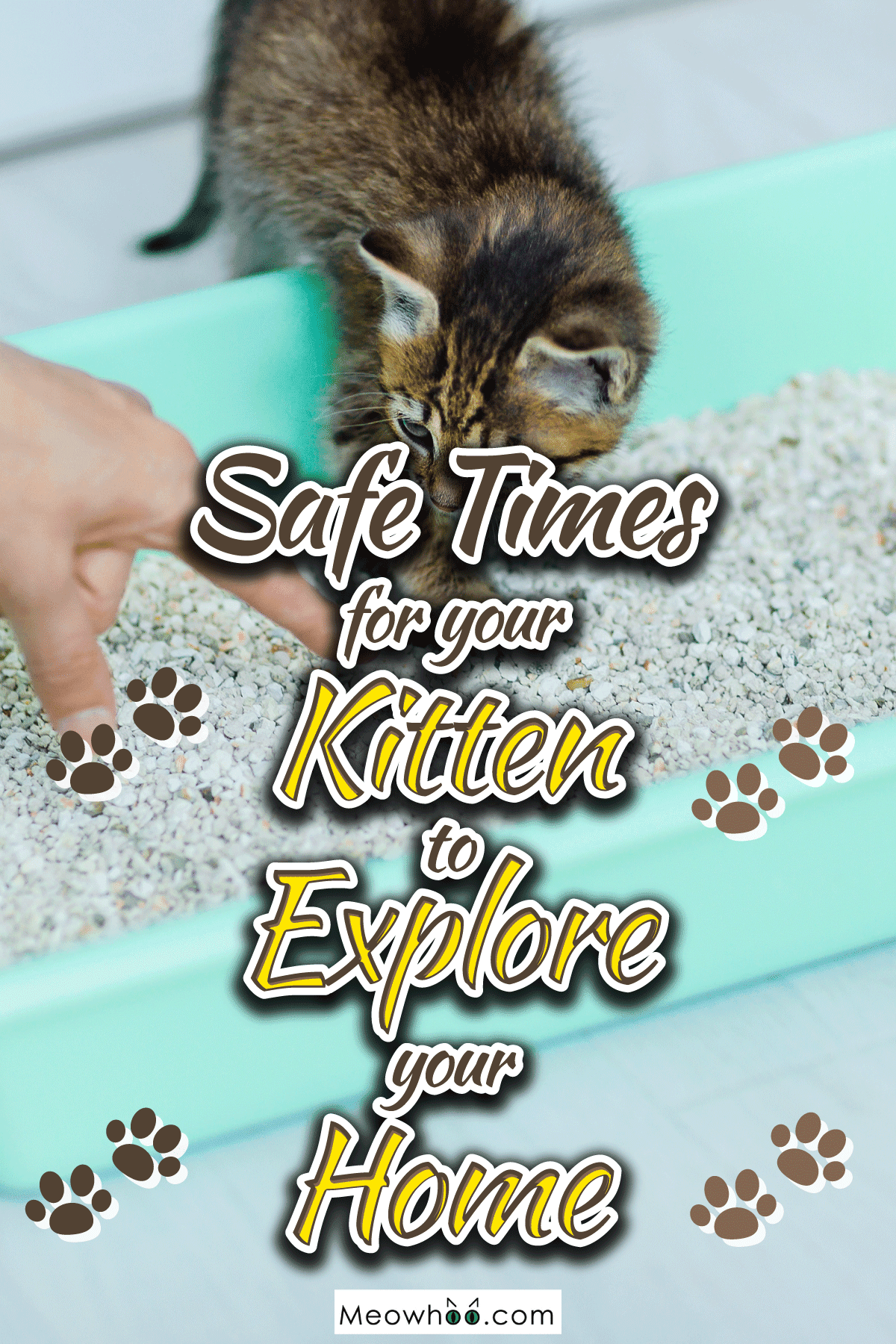When is it safe to let your kitten roam free? It's a question that every new pet owner asks themselves.
You want to give your furry friend the freedom to explore, but you also want to make sure they're safe and secure. So, what's the best approach?
We've got you covered. In this article, we'll share everything you need to know about letting your kitten roam free.
We'll start with a story about a bright-eyed kitten named Luna and how her owner learned to let go of her anxiety and embrace Luna's natural curiosity.
Luna had just arrived in her new home, and her owner, let's call her Sarah, was eager to let her explore.
Sarah had done her research and kitten-proofed the house to the best of her ability, but she couldn't help feeling nervous.
What if Luna got into something she shouldn't?
What if she hurt herself?
As if on cue, Luna made a beeline for the bookshelf. Sarah held her breath as Luna leapt onto the lowest shelf, sending a stack of books tumbling to the ground.
But to Sarah's surprise, Luna didn't seem fazed. In fact, she looked downright pleased with herself. And that's when Sarah realized: Luna was ready to roam.
In the rest of this article, we'll explore the ins and outs of letting your kitten explore your home.
We'll cover everything from timing to safety tips, so you can make an informed choice that works for you and your furry friend.

At What Age Can a Kitten Freely Roam the House?
Many new kitten owners wonder when it is safe to let their furry friend roam the house freely. While there is no specific age for this, there are a few things to consider before giving your kitten free reign.
Firstly, your kitten should be litter-trained and able to navigate your home safely. This means they should be able to find their way back to their litter box and food and water bowls without getting lost or injured.
Most experts agree that it's safe to let your young kittens explore as soon as they're comfortable with their home and surroundings, typically around four months.
However, it's important to remember that each kitten is unique, and some may take longer to feel comfortable in their new environment.
It's also important to supervise your kitten during their explorations until you're confident that they won't get into any dangerous situations.
This can include closing off certain areas of your home or using baby gates to keep them in a designated area.
Remember, the safety of your kitten should always come first. While it may be tempting to let them roam free, it's important to take the necessary precautions to ensure their safety and well-being.

Kitten-proofing Your Home
Securing Hazardous Items
Before allowing your kitten to roam the house, you need to make sure that all hazardous items are secured and out of reach.
Remove items such as cleaning supplies, medications, and chemicals. Keep them in cabinets or drawers that your kitten cannot open.
You should also make sure that any small items, such as buttons or coins, are picked up off the floor to prevent your kitten from choking on them.
You should also be mindful of any plants in your home, as some plants can be toxic to kittens. Make sure that all plants are either out of reach or placed in a secure area.
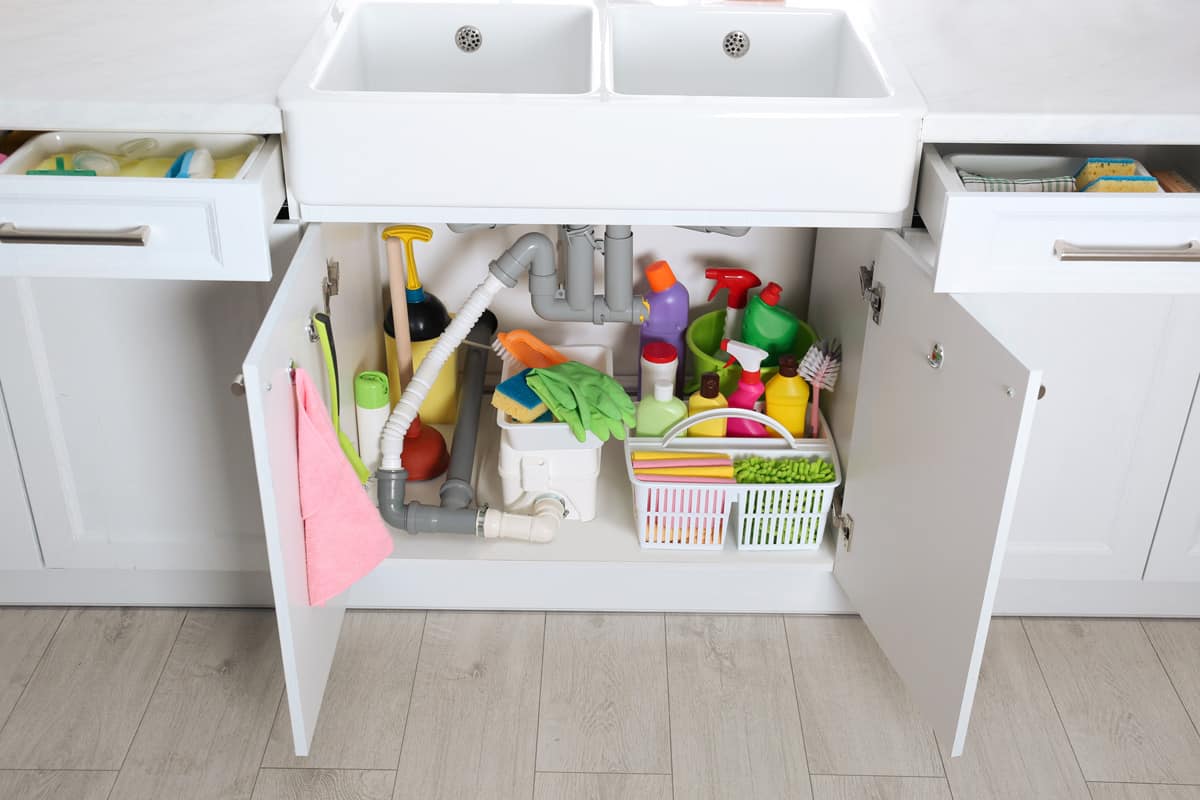
Blocking Off Dangerous Areas
There may be areas in your home where your kitten could get hurt or stuck.
You should block off areas where your kitten could get trapped, such as under furniture or in small spaces. You should also block off areas where your kitten could fall, such as staircases or balconies.
If you have any electrical cords or wires, make sure that they are either hidden or covered to prevent your kitten from chewing on them. You can also use cord covers to keep them out of reach.
Finally, make sure that all windows and doors are securely closed to prevent your kitten from escaping. You can also install screens on windows to prevent your kitten from falling out.
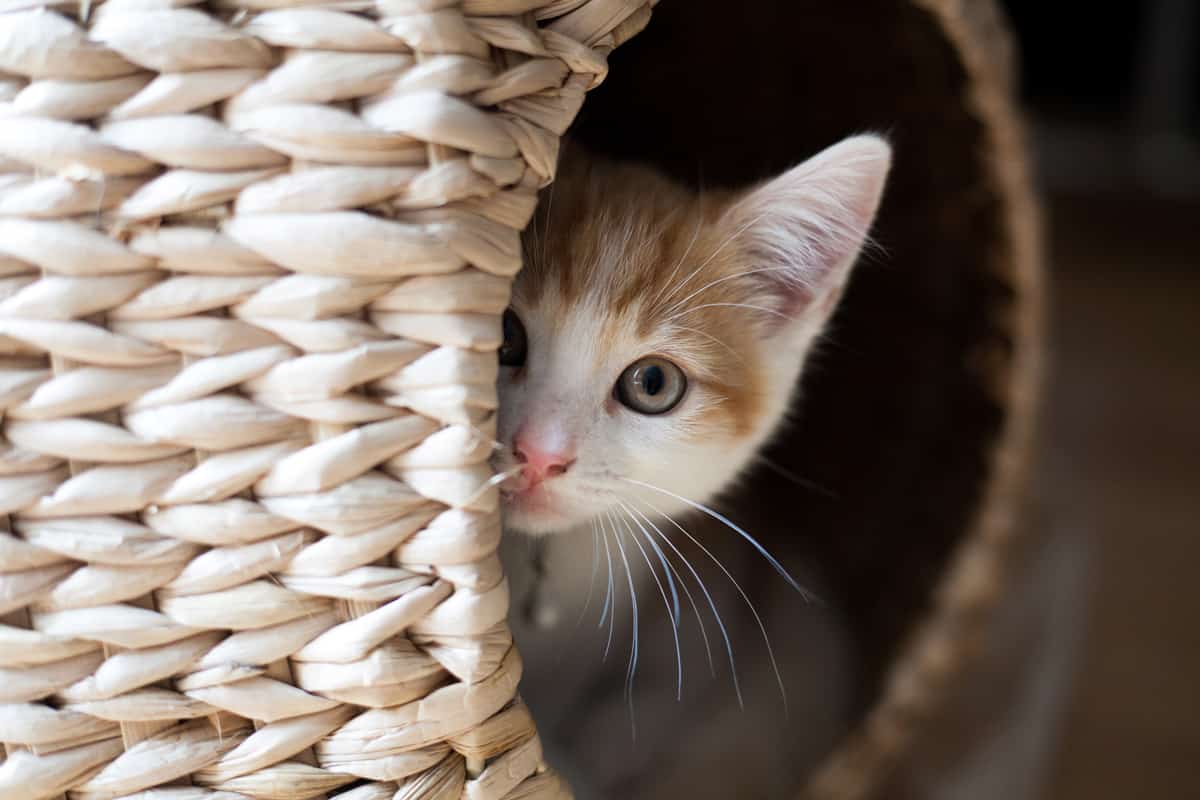
More things you can do to kitten-proof your home
- Secure all windows and screens to prevent your kitten from falling or escaping.
- Cover electrical cords or hide them behind furniture to prevent your kitten from chewing on them.
- Store all household chemicals, medications, and toxic plants out of reach in cabinets or high shelves.
- Keep small objects such as buttons, coins, and paper clips out of reach to prevent your kitten from swallowing them.
- Use childproof latches to secure cabinets and drawers that contain breakable or dangerous items.
- Remove any dangling cords or strings that could pose a choking hazard.
- Cover any exposed outlets or power strips to prevent your kitten from getting electrocuted.
- Keep toilet lids closed to prevent your kitten from drowning or drinking harmful chemicals.
- Use baby gates to block off any areas of the house that are off-limits to your kitten.
- Consider investing in a covered litter box to prevent your kitten from scattering litter or playing in their waste.
Preparing Your Kitten for Freedom
Preparing your kitten for freedom is an important process that requires patience and consistency.
Litter Training

Before you let your kitten roam the house, make sure they are fully litter trained. This will help ensure that they don't have any accidents on your floors or furniture.
Provide your kitten with a litter box in a quiet area of the house and clean it regularly.
If your kitten has any accidents, clean them up with an enzymatic cleaner to remove any odor and discourage them from going in that spot again.
Socialization
Socialization is an important aspect of preparing your kitten for freedom. Make sure your kitten is comfortable around people and other animals before allowing them to roam freely.
Introduce them to new people and animals gradually, and always supervise their interactions. This will help prevent any potential conflicts or accidents.
Supervising Your Kitten
Monitoring Their Behavior
When you first start letting your kitten roam the house, it's important to keep a close eye on them.
Observe their behavior and make sure they're not getting into anything dangerous or harmful. Keep an eye on their litter box usage and make sure they're not having any accidents.
If you notice any concerning behavior, it may be best to limit their roaming until they're better trained.
Setting Boundaries
It's important to set boundaries for your kitten when they're roaming the house.
This can include closing doors to certain rooms or areas, setting up barriers or gates, and removing hazardous items or toxic plants. Make sure your kitten has access to food, water, and their litter box at all times.
Is it ok to let kittens roam the house at night?
After your kitten has had a chance to roam your home during the day, it's generally safe to let your them roam the house at night as well.
Just remember: If you do choose to let your kitten roam, make sure to remove any potential hazards, such as electrical cords or toxic plants.
Should I keep my kitten in a room while at work?
If you're going to be away from home for an extended period of time, it's best to keep your kitten in a separate room with their litter box, food, and water.
This will ensure their safety and prevent accidents or destructive behavior while you're away. To make the room more stimulating, consider leaving some toys or scratching posts for your kitten to play with.
And don't worry - your kitten will still get plenty of love and attention when you return home. Just make sure to spend some quality time with them each day to keep them socialized and happy.
So When to Allow Your Kitten to Roam the House?

When it comes to letting your kitten roam the house, there is no specific age that applies to all kittens.
However, there are a few things to consider before giving them free reign of your home.
Firstly, ensure that your kitten is fully litter trained before allowing them to roam the house. Typically, kittens are litter trained by the time they are 4 to 6 weeks of age.
However, it is always a good idea to supervise them until you are confident that they are fully trained.
Secondly, you should make sure that your home is kitten-proofed. This means removing potential hazards such as toxic plants, small objects that could be swallowed, and electrical cords.
It is also a good idea to gradually introduce your kitten to new areas of the house. Start by allowing them to explore one room at a time and gradually increase their access to other areas as they become more confident and comfortable.
Finally, it is important to remember that kittens are curious and playful by nature. They may be prone to mischief, so supervise them closely and provide plenty of toys and stimulation to keep them occupied.
With proper supervision and plenty of stimulation, your kitten can safely explore their new surroundings and enjoy their newfound freedom.
Read more: Are Scratching Posts Good For Kittens? [And Which One To Choose]
Some elements on this page may have been created by our team using advanced AI to provide you with top-notch cat inspired ideas. Read more about our AI Content Policy.

